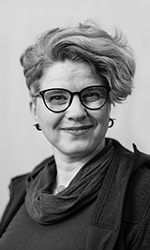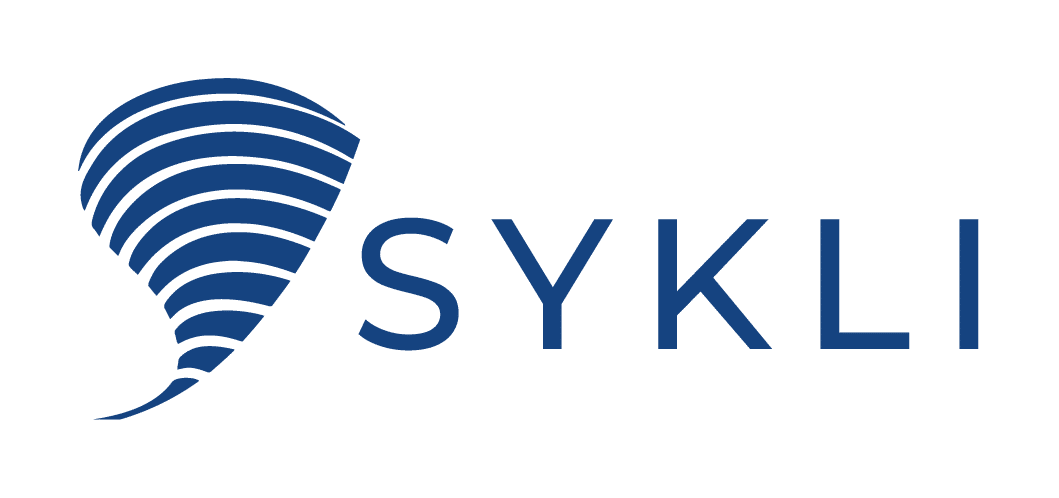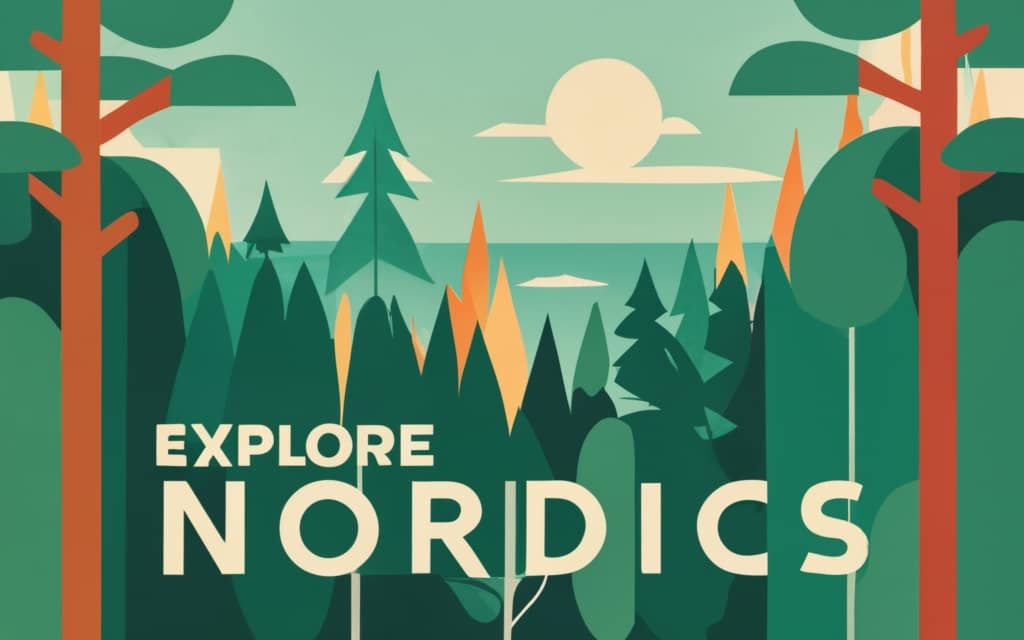
Environmental Education and Nature interpretation in the Nordics
Nordplus Horizontal 2023 is a nature interpretation networking and training program. The project is run by the Nordic group for nature interpretation. The aim is to learn more about educational practices for nature interpretation and environmental education in the Nordic countries. By learning from each other we hope to enhance the quality of the education for nature interpreters in the Nordic countries.

What is cool about this project?
The “Nordic interpretation group” consists of representatives from the leading organisations of nature interpretation and environmental education in Iceland, Norway, Denmark, Sweden and Finland. Therefore the group in and of itself is cool.
All the organisations in the group are working with educational programs themselves, or together with other educational institutions. The vision for this co-operation group is to promote “nature awareness, connectedness and environmental empowerment for everyone in the Nordic countries”. The mission is:
Through organizational co-operation, bringing together Nordic nature interpreters and environmental educators to increase the quality of nature interpretation and environmental education to fulfill the vision.
Knowledge on nature interpretation and environmental education is more actual than ever, in order to engage people in taking actions for climate, nature and biodiversity in the Nordic countries. One of the key aims of nature interpretation/ environmental education is to increase awareness of the severity of the climate and nature crisis, but also to share inspiration and methods to deal with this situation and to encourage faith in the future.
However, there is also an increasing interest and need for the social dimensions of nature interpretation/environmental education for instance nature-based activities connected to education for health and well-being, participation, integration, and accessibility. Cross-sectoral nature interpretation has a growing relevance to a socially sustainable and just future.
Through this project we want to take our work further by co-developing and delivering knowledge about the novel interpretive methods and offers in the Nordic countries.
The project runs for two years, 2023-2025.
What will happen in the project?
👉Save-the-date: Nordic workshop in Uppsala (March 2025)
In March 2025 (19th-21st), there will be a Nordic Seminar for Environmental Education and Nature Interpretation for Professionals in Uppsala, Sweden. New insights and key findings will be compiled and strategies developed for how the participating organisations can apply new knowledge to their educational programs.
Explore Nordics – Seminar Schedule and Workshops
Uppsala, 19-21 March 2025
Location:
Seminar opening (WED):
Sveriges lantbruksuniversitet, Ultuna Campus.
Accomodation & program (WED-FRI):
Wiks slott
Wiks slott är en konferensanläggning vid Mälaren
👉 Watch here the full descriptions of the workshops
| Day | Time | Activity | Workshop Topic and Description |
|---|---|---|---|
| Wednesday 19.3.2025 13.00 – 16.00 Sveriges lantbruksuniversitet, Ultuna Campus | |||
| 12.00 | Lunch At your own cost | ||
| 13:00 | Welcome & Introduction to the Seminar | ||
| Interpretation and working with value-based questions Thorsten Ludwig/Interpret Europe | |||
| Break | |||
| Workshops, A – Sweden | WS1 Research on different practices of interpretation WS2 “Nature boost” – Communicating nature and biodiversity 2025-2030 WS3 Supporting democratic dialogue in nature interpretation | ||
| Transfer to Uppsala | |||
| From Linnaeus to Rewilding – Walk in Uppsala | |||
| Voluntary evening program | Evening at the Evolutionary Museum/ Biotopia Dinner | ||
| Bus / taxi to Wiks Slott | |||
| Thursday 20.3.2025 9.00 – 16.30 Wiks Slott | |||
| Breakfast | |||
| 9:00 | Morning Walk and Talk (inspired by Wild pedagogies) | ||
| Workshops, B – Finland | WS4 GreenComp – What sustainability competencies do we need in the future? WS5 From observation to understanding of nature WS6 National Park Simulator | ||
| Lunch | |||
| Workshops, C – Denmark | WS7 Scientific Knowledge in Nature Interpretation WS8 Nature Formation (Naturdannelse) WS9 Views of Nature (Natursyn) | ||
| Coffee Break | |||
| Workshops, D – Norway | WS10 Visitor Management and Communication WS11 Public Right of Access! Possibilities and Boundaries for Interpretation WS12 Fear of working with conflict-filled topics? | ||
| Voluntary evening program | Voluntary Walk and Talk – reflecting & networking | ||
| Supper | |||
| Voluntary evening adventures organized by participants | |||
| Friday 21.3.2025 9.00 – 12.30 Wiks Slott | |||
| Breakfast | |||
| 9:00 | Workshops, E – Iceland | WS13 Nature Interpretation in Everchanging Nature WS14 Creative Ways to Interpret Nature WS15 What is more important: Climate Change vs. Biodiversity? | |
| “Creativity, Humor, and Innovation in Nature Interpretation” Martin Einfeldt Master of Science (MSc) in Forest and Nature Management and in Positive Psychology. | |||
| Reflections & Closing of the Seminar – Seminar program ends at 12:30 | |||
| Lunch & Goodbye |
Webinar series (spring 2024) – get an overview of Environmental education and Nature Interpretation in the Nordics
Each participating country took turns and hosted a country webinar, which provided an overview on what courses and other educational activities are offered for nature interpreters / environmental educators in each country. Webinars gave an overview over current structures and ways how education for environmental awareness and nature relationships is supported and enhanced in the Nordics.
Webinar series brought together professionals in the fields of environmental education and nature interpretation in the Nordic countries to increase understanding, ideas and professional competence.
The webinar series on Environmental Education and Nature Interpretation in the Nordics attracted a total of 483 participants across five different webinars, held in the Nordic countries and internationally.
Participants by Country:
- Finland: 229 participants
- Norway: 80 participants
- Sweden: 54 participants
- Iceland: 29 participants
- Denmark: 33 participants
- Other countries: 58 participants (including participants from China, Chile, Costa Rica, Estonia, the United States, and several European countries such as France, Greece, and Switzerland).
The webinars garnered significant international interest, with attendees from both the Nordic countries and across the globe. You can find the links to each country’s webinar presentations and materials by scrolling further down the page.
LIVE meeting in Finland (autumn 2024)
Representatives from each country will meet in Finland in September 2024, to plan & prepare the contents of a LIVE workshop in Sweden. The project group will meet in person in a two-day live planning meeting. The aim is to pull together a workshop program and prepare and send out invitations for the workshop. In this meeting we will also sum-up the outcomes of the country webinars and prepare for starting the reporting process.
Past webinars and materials:
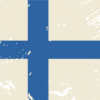
Environmental Education in Finland, PhD Essi Aarnio-Linnanvuori, University Lecturer (environmental education and sustainable development), Tampere University
In her presentation PhD Essi Aarnio-Linnanvuori represented Finnish school system, Environmental and sustainability education in Finland and opened its current state and future directions. She opened the current challenges in ESE (Environmental and Sustainability Education), presented a Model for holistic climate change education (so called “The Climate Education Bicycle Model”)
She presented that Finnish curriculum documents give a good basis to implement ESE – but implementation has not yet reached desirable level. Therefore ESE should be developed to directions of ascending learning paths, worldview and cultural awareness and focus on strategies and solutions instead of problems. ESE should be connected to learners’ own lives. Nonformal learning environments such as outdoors and nature environments present fresh opportunities to make these issues interesting again.
Ideas for fresh ESE implementation, as follows:
- Learning path from early education to adulthood
- Solution-oriented information & education
- Reaching also those not interested – connecting ESE to young people’s own lives and worldviews
- Including outdoor learning environments
- Cooperation between formal and nonformal learning
- Regular training for in-service teachers
Nature Interpretation in Finland -summary Leena Honkasalo, SYKLI Environmental College
In her speech, Leena Honkasalo presented how nature interpretation and environmental education are organized at different educational levels in Finland, and she provided some examples of these trainings and courses. She also outlined other ways to promote nature interpretation and environmental education in Finland, such as certified guides at nature centers, conservation areas and nature centers as learning environments, networks at different levels and in-service training.
At the end of her speech, Leena explained more informal forms of nature interpretation and environmental education, such as Forest Mind, Green Care, non-formal learning, well-being, nature as a working space (adults, companies…) and recreational activities (sports, scouting, 4H, The Finnish Nature Association Luontoliitto).
3 perspectives on environmental education/nature interpretation:
- Training programs and professional development, Anna Haukka, SYKLI Environmental College
Anna Haukka introduced SYKLI Environmental College as an institute and especially it’s Environmental and Sustainability Education Team and it’s courses, such as a Study Program for Environmental Educators, ongoing projects, for example Kutsu seikkailuun = An Invitation to an Adventure, Enemmän elämää = More Life / More Living. She also showed a diagram of the benefits of learning in a natural environment and presented SYKLI’s learning materials.
- LYKE network, MAPPA.fi service, Ulos-Ut-Out conference and the role between researchers and schools, Sanna Saari-Vesterinen , The Finnish Association of Nature and Environment Schools
Sanna Saari-Vesterinen explained the activities of the LYKE network in her presentation. LYKE coordinates the nationwide LYKE-network, maintains the open MAPPA.fi service, organises the big outdoor educational event ULOS-UT-OUT, and operates between schools and researchers. Over 50 LYKE-centers offer environmental education services for schools and kindergartens on local level. MAPPA.fi offers tools for teaching – It’s a material bank, a search engine, a sharing platform and a multifunction tool. The next Ulos-Ut-Out will take place in the summer of 2026. It gathers hundreds of teachers, educators and instructors – but also policymakers, researchers, and students together.
- Nature interpretation through projects / Elina Pilke, Senior Specialist, Nature Education, Metsähallitus Parks & Wildlife Finland
Elina Pilke presented examples of different funding sources for nature interpretation projects in Finland, as well as one case example of a recent joint project where one of our project themes was well-being impacts of nature. Funds for projects can be granted by the Ministry of Environment, the Finnish National Agency for Education, various foundations and EU´s LIFE Programme. The project Towards an environmentally competent learning community was presented as an example of projects funded by the Finnish National Agency for Education. The project had 9 partners and was coordinated by WWF Finland. It aimed to enhance sustainable practices and environmental literacy in early childhood education, schools, high schools, and vocational institutions. Educators were empowered to integrate sustainability into their teaching practices, emphasizing current environmental knowledge, sustainable daily life, and the well-being benefits of nature. Within this project we arranged training courses and published teaching materials about the theme nature’s well-being impacts.
National Park Simulator – a game for comprehending biodiversity / Maria Salin, Nature Education Specialist, The Finnish Nature Centre Haltia
Maria Salin introduced the Finnish nature Centre Haltia and it´s services for visitors and educational groups, then presented a field game developed by Haltia´s nature school, called National Park Simulator. Maria described the game´s pedagogical principles, idea and goals, it’s elements, structure and outcomes. The game materials where published in 2023 in finnish and Swedish, and can be printed out from Metsähallitus publications website >>
3 environmental education/nature interpretation exercises/examples
- Connecting to nature – systemic thinking, Ulla Myllyniemi, SYKLI Environmental College
Ulla Myllyniemi presented the workshop she conducted at the Out of the Box Erasmus course by Sykli Environmental College, which functionally explored the Earth’s boundaries and systemic nature, as well as the cycles of various elements in nature, and what happens when these cycles are broken into a linear chain. The exercise also considered the impact of a single component in the systemic network on the rest of the network and the different types of relationships people can have with nature. The workshop concluded with a functional exercise and a lever model of nature connection.
- Nature excursion machine (species observations, environmental change, climate change, biodiversity loss), Sanna Saari-Vesterinen , The Finnish Association of Nature and Environment Schools
Sanna Saari-Vesterinen explained the background and functioning of the Nature Excursion Machine in her presentation. Biodiversity loss and climate change are hard to tackle, because they are caused by the way we are living and have built our society (with cheap fossil energy). The tentacles of problems are everywhere in the system. System-level understanding is needed to build a sustainable future. Let’s help teachers and students on the way to systemic thinking! The presentation shows an idea how to get from species observation to system-level understanding.
Students have the right to learn how human activity affects other species and how everything is interconnected. The Nature excursion machine (https://mappa.fi/linturetkikone/) has information on 52 bird species, all of which are messengers of a certain environmental change or ecological phenomenon. The excursion machine was built together with the Finnish biodiversity info facility, and the material is dynamic. A teacher or anyone can get a selection of birds that can be seen in his/her own area today. If the teacher prints the qr code, and puts it on the classroom wall, the students get an always updated selection of birds with the same qr code.
With this excursion machine, we aim to make it easier for teachers to take their class outside to observe birds and signs of environmental change, and to help teachers and students move from observation to system-level understanding. In this fast-changing world, you need up-to-date information and fast information flow. With this excursion machine, information goes directly from researchers to students and teachers. The machine is later supplemented with pollinators and their food plants. The contents will also be translated into Swedish in the future.
- Looking at Environmental Education and Nature Interpretation through the European GreenComp Framework, PhD Niina Mykrä, postdoctoral researcher, University of Jyväskylä
In her concluding remarks, Niina Mykrä explained what GreenComp: the European sustainability competence framework means and reviewed the webinar presentations by placing them within this GreenComp competence framework.
Summary of the webinar series, Ulla Myllyniemi, SYKLI Environmental College
Ulla Myllyniemi presented a brief summary of the webinar series and concluded the webinar.
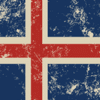
Nature interpretation in Iceland
The host: The Environment Agency of Iceland
In this webinar we focused on the connection to the Icelandic heritage with the Sagas and the folk stories, how and where nature interpretation is taught today and how it is used in the field of ever changing nature, with focus on both nature conservation and visitor safety.
The Environment Agency of Iceland hosted the webinar. The Environment Agency oversees over 130 protected areas in Iceland and educate rangers to work in these areas. The webinar was planned in cooperation with Vatnajökull National Park, Þingvellir National Park and the Icelandic Museum of Natural History.
From settlement to storytelling, Torfi Stefán Jónsson, Þingvellir National Park
A short introduction on cultural heritage is used widely as an interpretation tool, mainly in Þingvellir national park but also other places. Stories, saga´s and folk tales have been used to entertain and transfer knowledge from generation to the next one since settlement. These tales often mention the peoples hard struggle with unforgiving nature but also the need for respect of it. They are used still today with groups of all ages that come to visit as they are a in them self an interpretation of natural phenomenons or places.
Interpretation in ranger training. Nature interpretation as a management tool in National Parks and other protected areas, Kristín Ósk Jónasdóttir, The Environment Agency of Iceland
An overwiew of the ranger training in Iceland was introduced and focused on the interpretation part of the training. Because of fast growing tourist sector in Iceland, number of visitors have grown very fast, and there for our focus is in a way as says in this quote – Meaningful interpretation is based on management needs, visitor desires, and the benefits produced.
Interpretation education in Universities, Guðmundur Björnsson, University of Iceland
Guðmundur gave an overwiew of the options to learn about interpretation at the University of Iceland.
Windows towards nature, Informal education in nature exhibitions and visitor centers, Helga Aradóttir, Icelandic Museum of Natural History and Stefanía Eir Vignisdóttir, Vatnajökull National Park.
Helga Aradóttir gave an overview on how nature interpretation is used in the Icelandic Museum of Natural History´s outreach programme. The focus was on school groups that visit the museums exhibition, and the development of the museums first headquarters and a new exhibition opening in the spring of 2026, cross diciplinary family events and workshops with focus on nature and art, and collaborations with other institutes in terms of exhibition and development projects.
Stefanía introduced the use of visitor centers within protected areas in Iceland and how they serve as windows towards nature. As visitor centers are growing in number and different exhibition are being designed she touched on the ideas behind the information they represent and their importance in nature interpretation for each area. As important as visitor centers are to welcome the high number of foreign and domestic travelers, they are also important for local communities and children. Additionally, a large part of the protected areas are far from any visitor centers so providing information and the use of nature interpretation is also shared in many different forms, such as in educational walks and interpretation of rangers in the field.
Nature interpretation in ever changing nature, Nína Aradóttir and Stefanía Eir Vignisdóttir, Vatnajökull National Park.
This talk provided and overview on how nature interpretation in Iceland is highly depentant on the dynamic nature. The focus was on glaciers and volcanic activity with examples from Vatnajökull National Park and the Reykjanes peninsula. In Vatnajökull National Park, the effects of melting glaciers are particularly evident, offering a unique opportunity to use the area as a natural laboratory to study and communicate the impacts of climate change. The talk also highlighted the challenges faced by rangers due to volcanic activity, where visitor safety remains the top priority. However, these events also present opportunities for nature interpretation, both during and after volcanic occurrences.
Break out rooms – these are our thoughts. Tell us how does the sagas and folk stories connect into each countries interpretation.
It was interesting to hear in the break out rooms the different views participants had on using folk stories in the interpretation. Iceland is probably using it more in it´s nature interpretation than other countries in the north.
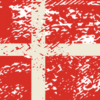
Abstract
The webinar presented training and education within nature interpretation and environmental education in Denmark. It consisted of presentations, discussion and workshops regarding central topics on education of Nature Interpreters in Denmark.
The webinar was hosted by Nature Interpretation Denmark and Forestry College at University of Copenhagen.
The focus was on telling and showing examples of how we work with the education of nature interpreters, spice up with exemplary examples. The participants were asked to bring something from nature to the webinar: A ‘nature thing’ that represent the following: What is happening in nature around you right now that you feel should be communicated?
Program of the webinar
- Welcome and introduction v. Jakob Walløe Hansen, Nature Interpretation Denmark
- Historical background and an overview of the educational landscape v. Mette Aaskov Knudsen, Nature Interpretation Denmark
- Nature interpretation in a Danish context v Søren Rafn, Natur Interpretation Denmark
- Presentation of the two existing nature interpretations educations in Denmark v. Eva Skytte, Nature Interpretation Denmark and Johanne Lybecker Christiani, Forestry College
- Break
- Workshops: Participate in two different workshops (see below).
Welcome and introduction
v. Jakob Walløe Hansen, Nature Interpretation Denmark
Welcome and presentation of Nature Interpretation Denmark. The association is a professional community that works to promote conditions for nature interpretation and nature communication in Denmark.
As a nature interpretator, the association means networking, collaboration, anchoring both before and after education/graduation.
About Nature Interpretation Danmark.
Historical background and an overview of the educational landscape
v. Mette Aaskov Knudsen, Nature Interpretation Denmark
Nature interpretation in a Danish context
v Søren Rafn, Natur Interpretation Denmark
The unique thing in DK:
- The diversity of Nature Interpreters – eg. many different subjects, skills and places of employment.
- Manage a great diversity of backgrounds, experiences and professional roots.
- Diversity which is an advantage – and also a challenge for education planners who have to accommodate widely different prerequisites to be in an education context.
Presentation of the two existing nature interpretations educations in Denmark
v. Eva Skytte, Nature Interpretation Denmark and Johanne Lybecker Christiani, Forestry College
In Denmark there are now two different Nature Interpretation Educations:
- The original education is a further education runned by Natur Interpretation Denmark
- A new education offered by the Foresty College, University of Copenhagen.
Workshops: Participate in two different workshops
The participants took part in 2 different workshops of 30 minutes:
Workshop 1: Bushcraft – a pedagogical method for concrete attention to the environment and climate
Cancelled
Workshop 2: ‘Naturdannelse’- a new concept in Danish nature interpretation
By: Mette Lyngs Ferrum, The Outdoor Counsil and Rikke Mortensen, Foresty College
Description:The workshop will be an introduction to ‘Naturdannelse’. We will give examples of activities and a debate on how we can use it as a guidance and tool in environmental Education and Nature interpretation in the Nordics.
‘Naturdannelse’ translated to nature literacy is a relative new concept in Denmark.
Nature literacy about providing children and young people with opportunities to learn about and connect with the natural world. It involves encouraging exploration, understanding, and appreciation of nature through various activities, teaching, and experiences. Nature literacy not only focuses on building knowledge about nature but also on promoting emotional, mental, and physical development in children through interaction with the natural environment.
Nature-interpreters play a central role in promoting children’s nature education. By creating and facilitating meaningful nature experiences, nature-interpreters can inspire children to explore and connect with the natural world. This may include guided nature walks, nature education in schools and institutions, as well as events and activities that allow children to explore and learn about nature in an interactive manner.
It is important for nature interpreters to work with children’s nature literacy, as it not only contributes to the well-being and development of children, but also promotes a deeper understanding and appreciation of nature, which is crucial for creating future generations of environmentally conscious citizens. Through nature literacy, we can help shape a more sustainable and responsible future by strengthening children’s connection to and understanding of the natural world.
See more: Børns naturdannelse. Naturen i barnet – barnet i naturen (centerforboernognatur.dk)
Workshop 3: Evaluation, reflection and feedback – different methods that support learning
By: Mette Aaskov Knudsen and Eva Skytte, Nature Interpretation Denmark
The three terms are used in many ways in the world of education. At this workshop you will get an introduction to how we define the terms and how we work with them when we organize nature interpreters education.
Workshop 4: Biodiversity – and cooperation between nature interpretors and schools
By: Jaris Bigler and Giuliano Matessi, Copenhagen’s Natur School
In this workshop, you will be introduced to concrete examples of how Copenhagen’s Nature School collaborates with the managers of urban parks and larger nature reserves to facilitate teaching of biodiversity to schoolchildren and teachers.
Workshop 5: Climate interpretation and methods – how do we work with competence development
By: Maja Birkeland Sell, Nature Interpreter
One way to work with competence development in Denmark is through professional networks. The Climate and Sustainability Network is an example of this. In this workshop, the networkfacilitator introduce the network and activities and give concrete examples of activities for children around climate and sustainability interpretation.

To Be, or Not to Be, a Part of Interpretation?
Nature Relations and Interpretation in Norway
How do diverse nature relations affect the role of nature interpretation in a country? How does it affect training?
These are the underlying questions we wish to explore as we present the educational and training provision on nature interpretation in Norway. Perhaps surprisingly, Norway is lagging behind some of its Nordic neighbors in nature interpretation research and education. Join to the webinar and share your insights with us as we seek to understand the reasons behind this.
Norway is a rugged and nature rich country with mountains, fjords and arctic areas. There are long traditions for “outdoor life” (friluftsliv), and to harvest from nature in the countryside. At the turn of the 20th century, national identity was shaped by the great polar explorers, like Nansen and Amundsen, and romantic landscape painters. Later, Norwegians developed extractive industries like oil and fish farming, as well as inspiring the “Deep Ecology” movement. Today, many Norwegians own a second home in the countryside enjoying outdoor adventure activities (often without a guide), however, often leaving the more traditional outdoor life behind. Norway is becoming increasingly urban and international, and there is an increasing need for nature guides and interpreters. So how does this affect nature interpretation in Norway?
Program of the webinar
- Introduction to Nature Relations and Interpretation in Norway, Kristian Bjørnstad,
Founder of the Interpret Norway Network. Director of the Norwegian Parks Association. Country coordinator (Norway) and certified trainer at Interpret Europe. Human Ecologist and Educator. - A Background and an Overview of Nature Interpretation in Norway, Torfinn Rohde
Retired World Heritage Coordinator and Head of the Interpretation Unit at the Norwegian Nature Inspectorate (SNO) - Interpretation in Outdoor Life (friluftsliv) education, Per Ingvar Haukeland
Professor of ecophilosophy and pedagogy. Head of the research group; Outdoor Life (friluftsliv), Society and Sustainability, at the University of South-Eastern Norway. Haukeland has previously headed the Centre for Nature- and Culture-based Innovation at Telemark Research Institute and became in 2023 a Certified Interpretive Guide (CIG) at Interpret Europe. He is exploring ways to integrate interpretation in outdoor life (friluftsliv) education. - The Development of Visitor Centers, Eva Lindgaard
Senior Advisor, Norwegian Environment Agency. Coordinating funding and authorizations of Visitor Centers for nature and world heritage in Norway. - Networks of Nature Interpreters in Norway, Benny Sætermo
Nature Interpreter, Visitor Centre, National Parks in Nordland
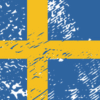
In this webinar it was discussed how training in the field of nature interpretation and environmental education is carried out in Sweden. The Swedish Centre for Nature Interpretation gave and over viewed of the landscape of training at three levels: systematic, program and professional competence buildning levels.
Program of the webinar
- Welcome and information from the organizers
- There are ongoing efforts to strengthen the profession Nature interpreter in Sweden. Per Sonnvik from the Swedish Center for nature interpretation tells us more.
- From Linköping university we hear more about courses about outdoor teaching. Emilia Fägerstam, Jonas Forsmark and Therese Lundqvist Jones gives us an insight on how the courses are organized.
- The Swedish centre for nature interpretation (SCNI) is a meeting place, centre for development and a competence resourse for nature interpreters. SCNI:s director, Eva Sandberg, will give you an overview of what the centre can provide, from university courses to short informative morning webbinars.
- On European level the organization, Interpret Europe, gathers interpreters from all over Europe. They provide for example webbinars, conferences and also week long courses that will make a certified writer, guide, planner or trainer. Valya Stergioti tells us more about IE.
- Now it is time to try some of the exercises that SCNI use in the different training sessions. This will also provide you as participants to network across the Nordic borders.
- Concluding discussions, wrap-up and information about the coming webinar.
More information
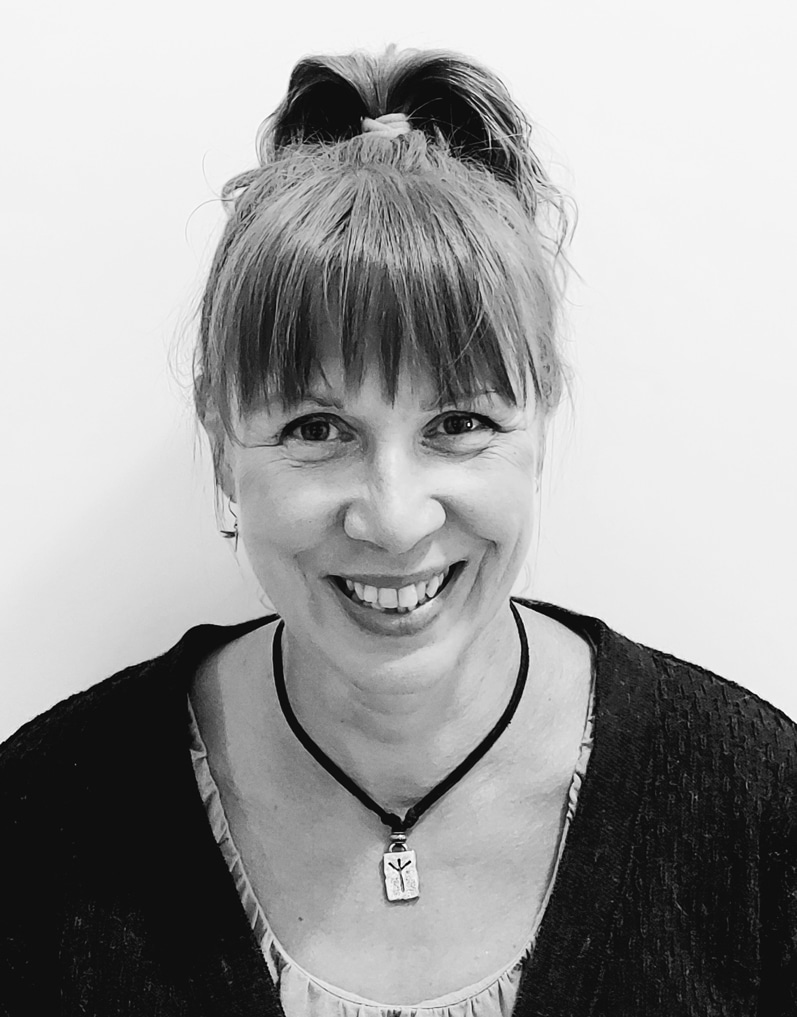
Ulla Myllyniemi
Trainer, Environmental and Sustainability Education